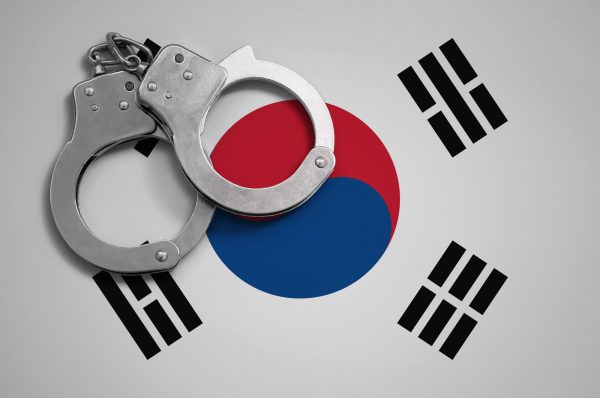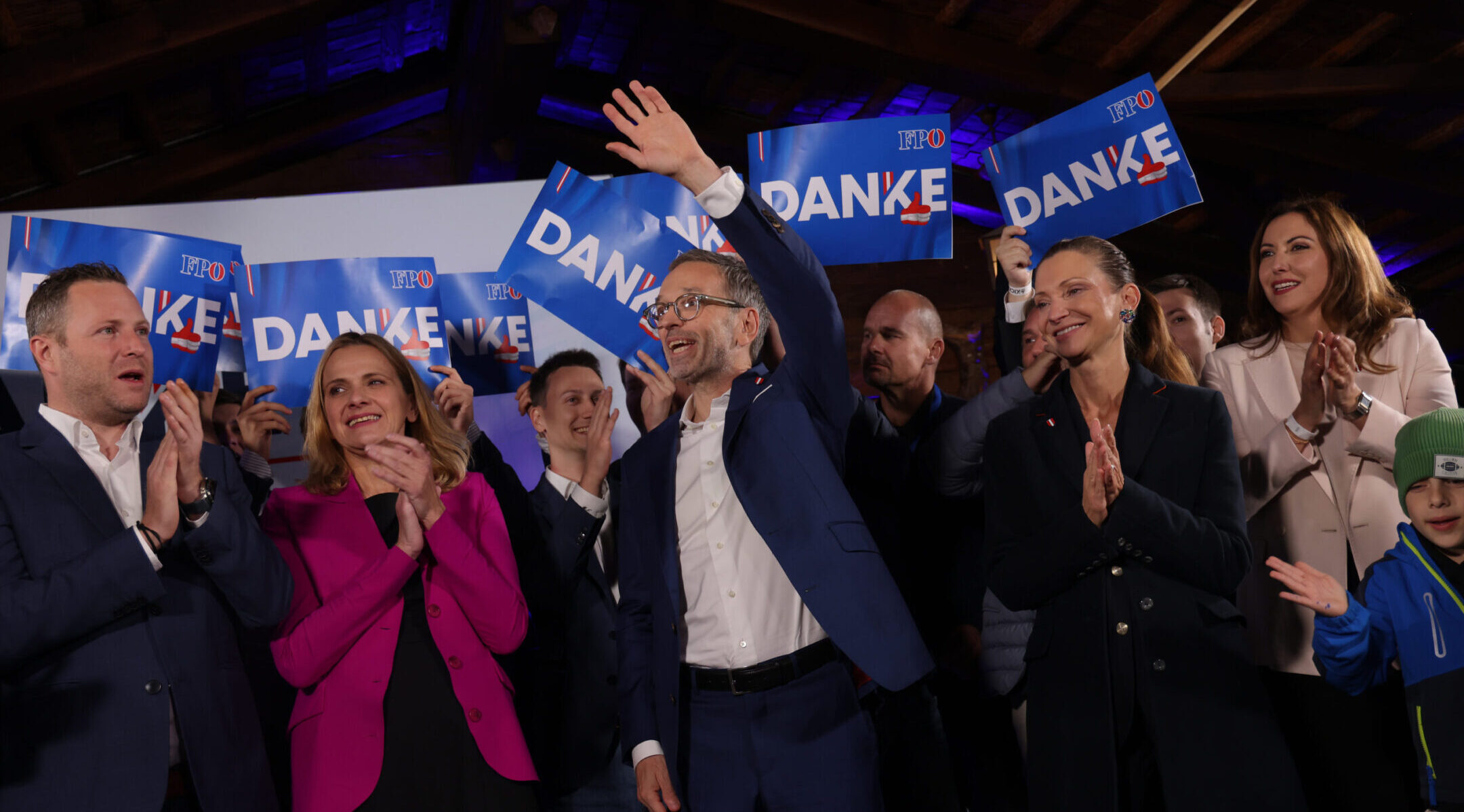On December 31, 2024, Seoul Western District Court issued an arrest warrant for South Korean President Yoon Suk-yeol on charges of insurrection. It was the first time such a warrant was issued for an incumbent president, albeit an impeached one. But it was only natural. Yoon upended South Korea’s democracy with his unconstitutional declaration of martial law in early December; South Koreans and the whole world watched in horror as armed forces smashed into the National Assembly in an attempt to cripple the legislature and imprison lawmakers.
Holed up in his presidential residence since then, Yoon had snubbed subpoenas for the ongoing investigations. He even composed a letter to his far-right supporters gathered outside. Printed out in a somber font with a handwritten autograph at the bottom, the letter thanked and exhorted them to fight with and for him – in saving the country, Yoon said, but it reads a lot like that takes the form of thwarting his arrest. For a new year’s greeting, the letter was also pugnacious and spiteful. Yoon mentioned the “wriggling of vile elements that threaten to subvert the nation’s sovereignty,” swearing to fight till the end.
He successfully incited his extremist advocates, some of whom now talk of shooting and bombing anyone who tries to arrest Yoon. This is seditious. But something worse, a genuine farce, unfolded on January 3.
In the morning of that day, some 100 investigators and police officers approached the presidential residence to execute the court-issued arrest warrant and detain Yoon. They jostled their way past the gates and buses and armored vehicles, only to be confronted by roughly 200 presidential security guards. Tension was high in the presence of firearms visible on the part of the Presidential Security Service (PSS). The investigators retreated.
Just like on December 3, when South Koreans witnessed how democracy could crumble overnight, they gasped yet again at the ghastly sight of a small privatized army defying due constitutional and judicial process.
The PSS put forth two legal grounds for its action. The PSS’s existence and operation derive from the Presidential Security Actwhich delineates its purview as safeguarding the president’s life and property from danger and disaster, and defending a particular area to that purpose. Hence, the PSS statement read“Absolute protection of the president’s safety is our raison d’être and noble mission.”
The other legal justification is the Criminal Procedure Act (CPA), under which search and seizure of a place containing confidential military information cannot be conducted without approval of a person in charge of the place – i.e. either the president or the PSS chief.
However, the PSS’s invocation and application of these two statutes are specious at best. First, detaining and interrogating the president, who has repeatedly flouted orders to comply with investigations, hardly constitute “danger and disaster” to his person. The PSS could simply request cooperation with law enforcement in surveilling and securing the place of his detention. Second, the CPA provision pertains to articles, not persons.
But most importantly, the constitution enshrines the rightful execution of the arrest warrant, search and seizure, and detention orders that the court deems necessary. It doesn’t take a legal wonk to understand the rudimentary notion that the constitution takes precedence over all statutes and regulations.
Yet, the PSS is prioritizing subordinate law over the constitution. This is a travesty of justice. Worse, it suggests that the Presidential Security Service has stooped to becoming a personal, private bodyguard service for Yoon, forgetting that it still is a group of public employees subject to the rule of law.
The problem is both structural and political. The PSS is under direct control of the president. This is an anomaly compared to other developed democracies. In the United States, the Secret Service protecting the White House and the president reports to the Department of Homeland Security. In the United Kingdom, the Metropolitan Police and a combination of police forces and intelligence agencies protect prime ministers and Downing Street. In France, the Interior Ministry handles presidential security through a specialized unit called GSPR.
This separation is designed to prevent armed personnel from degenerating into a politicized, personal coterie at the president’s beck and call. One of the defining characteristics of dictatorship has been direct control of security forces by the head of state.
Indeed, the structure for the PSS dates back to South Korea’s long period as a dictatorship. In 1963, Park Chung-hee, a former strongman who ruled South Korea for almost two decades, created the PSS as a loyal bodyguard to defend his military regime. It still remains to this day an independent agency accountable only to the president.
Likewise, its empowerment and importance depend purely on the president. And Yoon has successfully tapped into the PSS’ potential for privatization and authoritarian leanings. In November 2022, Yoon tried to amend a presidential mandate so that the PSS could also control police and military security groups stationed around the presidential residence. Amid intense public censure, the proposed revision was scrapped, but it could have placed 2,300 armed police and military personnel under direct PSS and presidential control, on top of some 700 PSS agents. It was actually around this time that some prescient observers sniffed the smell of martial law.
The Yoon administration jacked up the budget for the PSS by 43 percent to roughly $100 million. The PSS recruited 60 more agents. Yoon’s administration also increased the budget for the PSS investigation and intelligence activities by more than 20 percent. In October 2024, the government wanted to amend legislation to enable the PSS chief to carry out background checks. This is a sensitive and formidable authority, therefore reserved only to the national intelligence director, police chief, and defense minister. The proposal was rife with political hazard as the president would be able to pry into personnel without consulting due administrative channels. It was kiboshed amid opprobrium.
There have been other signs of the PSS falling into a stronger presidential grip. In May 2022, when Yoon became president, he appointed Kim Yong-hyun, his high school chum, as the PSS chief. That he picked his closest aide for the job raised much concern as observers worried the PSS could possibly deviate from security duty and enter other off-limit realms. Kim vindicated this concern by consorting with the military top brass and ordering his men to whisk off those criticizing Yoon in person.
Back in 2022, Kim also arranged for Capital Defense Command (CDC)’s 55th Security Group to swap places with the police to guard the outermost perimeter of the presidential residence on grounds that it was easier to deal with soldiers than the police. (Kim was once capital defense commander himself.) We saw the impact of that change on January 3, when the CDC security forces clashed with the investigators even though the police stationed outside conformed to the arrest warrant.
Yoon eventually appointed Kim as defense minister in September 2024. Kim, who is now in detention, having been indicted on charges of insurrection, actively encouraged and conspired with Yoon to declare martial law.
As Kim’s replacement as the PSS chief, Yoon appointed Park Jong-joon. Park used to be the PSS’ deputy chief under Park Geun-hye, a former president who fiddled with the possibility of martial law in the midst of her impeachment crisis in 2016. At Park’s PSS, he worked with Noh Sang-won, an ex-military intelligence chief arrested in December for his part in planning for the insurrection. Park himself faces allegations of aiding and abetting the insurrection by collaborating with police chiefs ahead of Yoon’s declaration of martial law.
Anonymous tip-offs from within the PSS alleged that Park ordered his agents on January 3 to resort to live ammunition should they fail to contain the investigators, and that the PSS protection bureau chief wanted to have cable ties at hand to neutralize investigators.
The PSS has now further beefed up its security posture with mobilization and stand-by orders and by laying down a thicket of vehicles and barbed wire everywhere.
By sprucing up the PSS with more budget and agents and gung-ho leadership, Yoon effectively created a private army that is now brazenly defying the rule of law and perpetrating a second insurrection. While Yoon’s flaws have been on stark display over the past month, he clearly excels at one thing: handpicking his henchmen and planting and rotating them among the government positions crucial to shielding him.
Following Yoon’s impeachment, Prime Minister Han Duck-soo, then the acting president, refused to fill the vacant justice seats at the Constitutional Court – apparently in in an attempt to reduce the likelihood of the court reaching the supermajority required to approve Yoon’s impeachment. Deputy Prime Minister Choi Sang-mok, now acting president, wouldn’t budge to rein in the PSS, instead urging the National Police Agency to reinforce the PSS rank in hindering the constitutionally executed arrest warrant.
The ruling People Power Party, after years of Yoon’s iron-grip domineering and incessant meddling in elections, largely refused to impeach him at the National Assembly. Now its legislators are on the streets alongside far-right firebrands and fanatics, seeking to impede Yoon’s arrest.
It was also Yoon who appointed Oh Dong-hoon to take the helm at the Corruption Investigation Office (CIO), which is now charged with investigating and arresting Yoon. Oh squandered the entire December before finally requesting Yoon’s arrest warrant from the court. He then let a few days elapse before attempting to execute the warrant. Oh bought the radical right, the PSS, the PPP, and Yoon’s legal reps ample time to coalesce and come up with a strategy to whip up sedition and justify Yoon’s untouchability.
Oh then botched the arrest by sending in a paltry group to face off the hundreds of armed personnel sheltering the president. He called off the police from arresting the PSS chief and agents for obstruction of justice. A high-ranking official at the police’s National Office of Investigation, which supported the CIO on January 3, said that one of the CIO investigators admitted that they didn’t even have the intention to arrest Yoon from the outset.
The CIO has requested another arrest warrant, as the original expired on January 6.
Yoon’s martial law, during which he personally directed his accomplices to axe and shoot their way through the National Assembly doors and drag out the lawmakers inside, shattered within hours South Korea’s cultural and economic prestige, which had been carefully and conscientiously constructed over decades. Its reliability as a global partner cratered miserably.
Now, the personalized, politicized PSS and Yoon’s other allies are perpetuating the harm and ignominy. They are making a mockery of South Korea’s democracy and rule of law. Even if Yoon is eventually detained and officially dismissed as president by the Constitutional Court, irrevocable damage has already been done. The whole fracas attested to South Korea’s political immaturity and the conservative elite’s lack of principles. This is anarchy, and the infamy will stick around for a long time.











